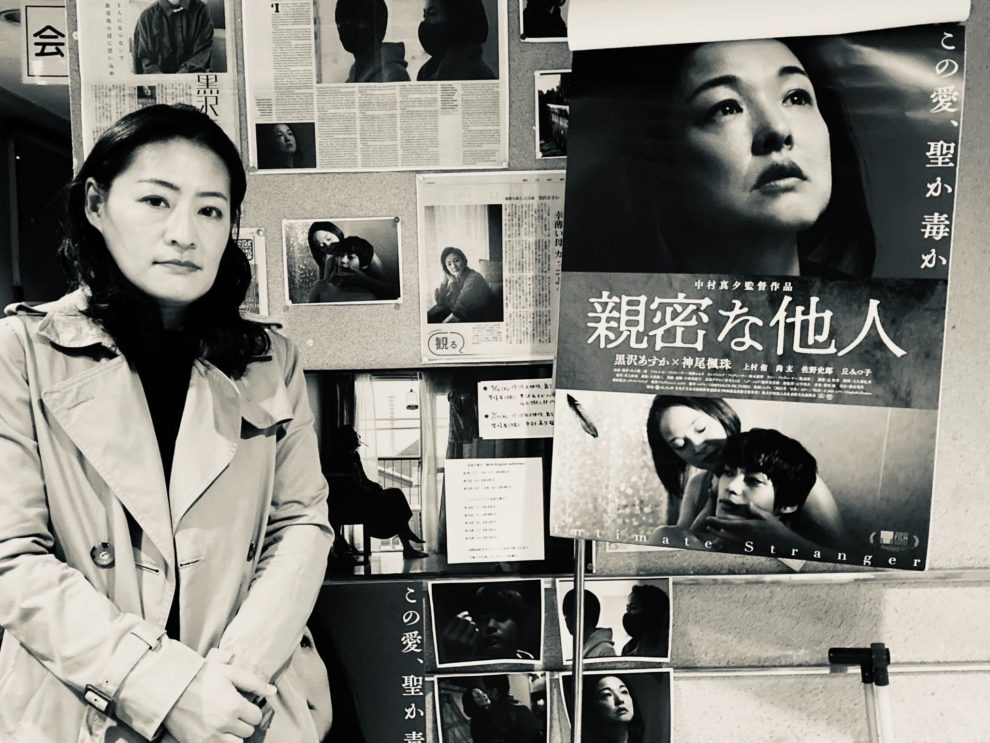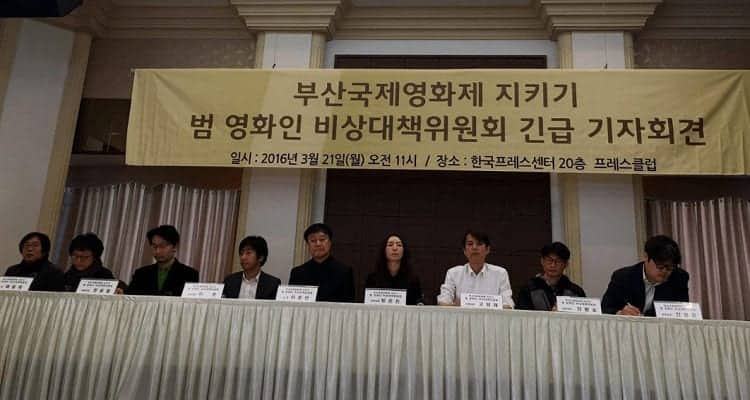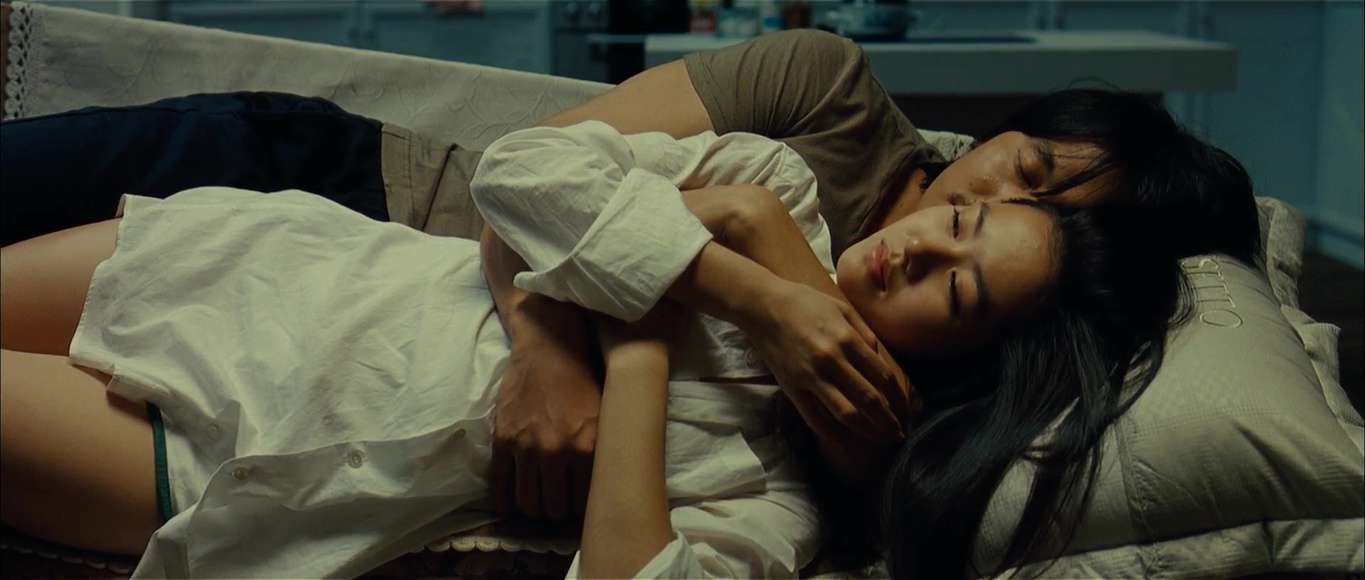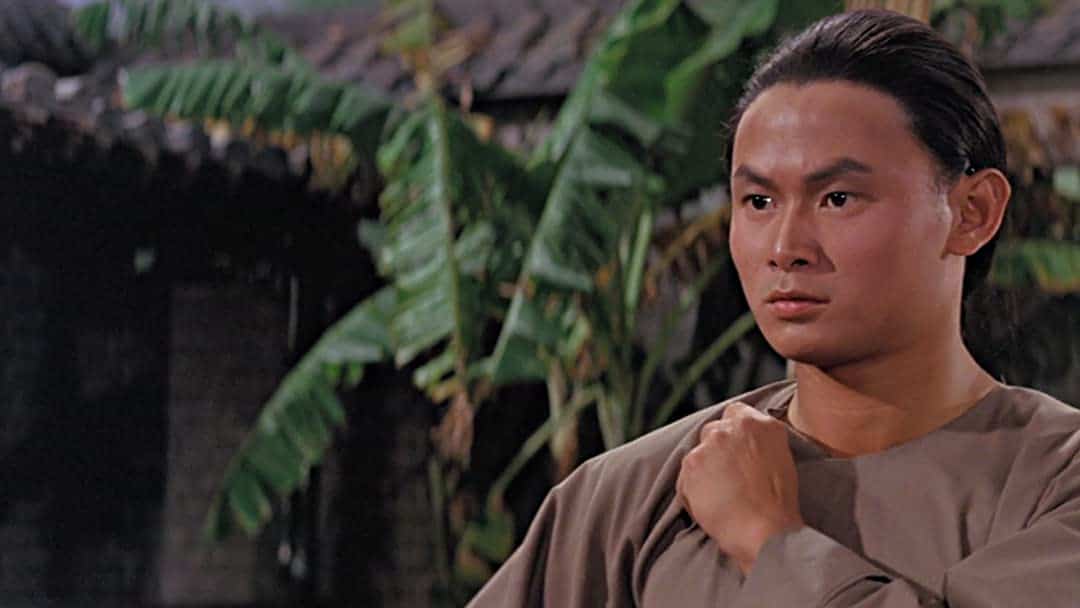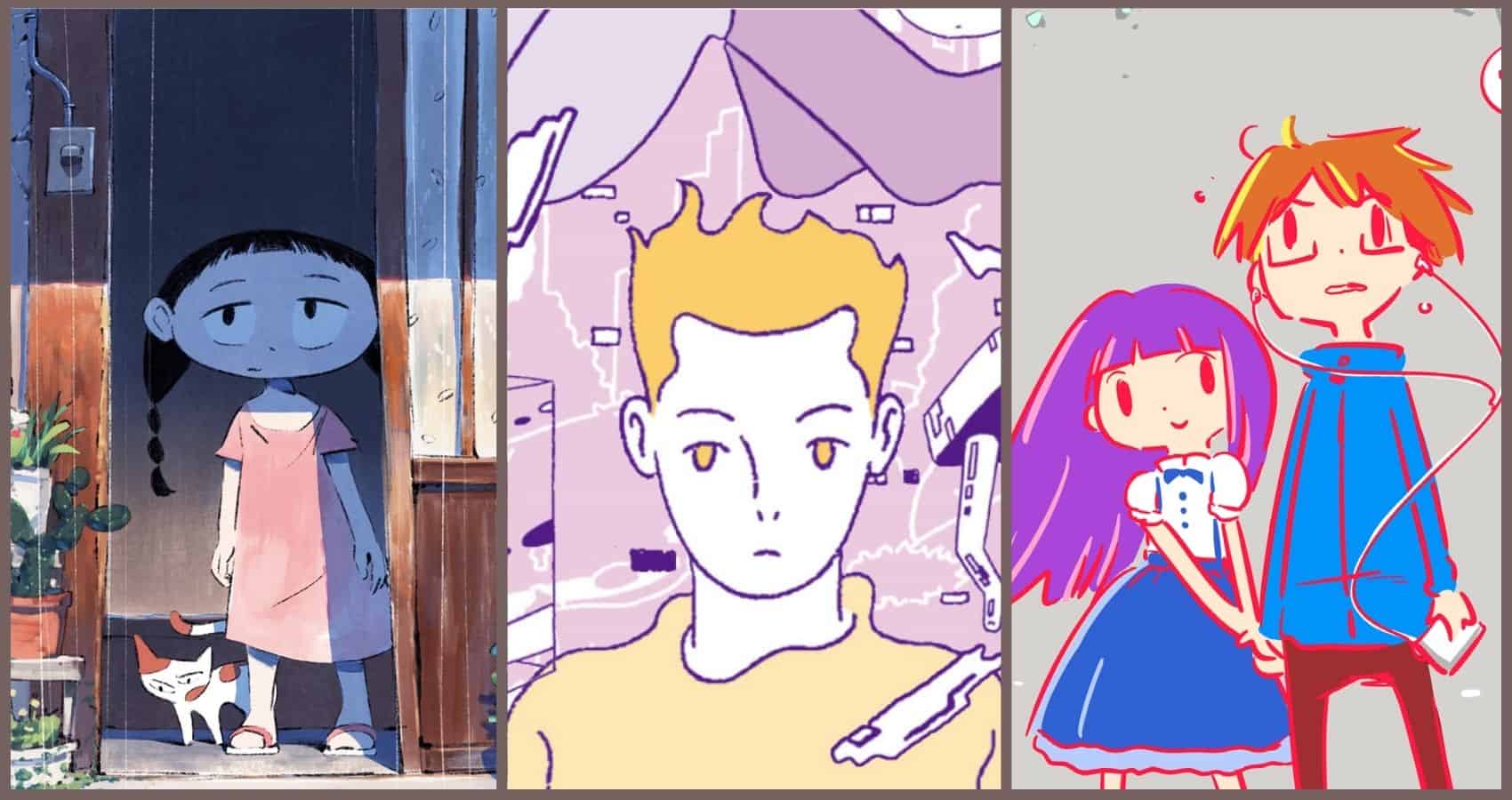Mayu earned an MFA from the Graduate Film Program at New York University. In 2006, her first fiction feature film, “The Summer of Stickleback” was premiered in the competition section at the Busan International Film Festival, and it was theatrically released in Japan. In 2012, Mayu directed the documentary feature film, “Lonely Swallows–Living as the Children of Migrant Workers” which follows Japanese-Brazilian kids struggling to survive in Japan and Brazil. The film won the Grand Prix in Documentary Features at the Brazilian Film Festival. In 2015, Mayu directed another documentary feature film, “Alone in Fukushima.” The film follows a man who stays in the nuclear zone with animals in Fukushima. The film was screened at the documentary section at Montreal World Film Festival, and it was theatrically released in Japan. Her writing credit includes “Tokyo Trial” which was nominated for the 45th Emmy Award in Best TV Movie/Mini-Series. Her latest work is fiction feature thriller “Intimate Stranger.”
On the occasion of “Intimate Stranger” screening at Helsinki Cine Aasia, we speak with her about the concept of scamming the scammer, mothers and sons, middle aged women in Japanese cinema, the acting and casting, and many other topics.
Can you tell us about the inspiration behind the story of the movie and this whole concept of scamming the scammer?
There was a real story about a mother in Texas who was deceived by a French boy and accepted him as her missing son. I think the story was made into documentary and fiction films. I was inspired by that story, and was intrigued by how desperation can drive a mother to accept a stranger as her son.
I was also fascinated by how many mothers dote on their sons in Japan. They are so close and their relationships are nothing like mother and daughter. I was also interested in the many telephone scams happening in Japan. The scammers always pretend to be sons or grandsons and never daughters or grand-daughters. So I thought that the peculiarity of this crime reflects this intimate relationship between mothers and sons in Japan.
Did you do any research regarding how these scams work beforehand?
I did some research and I found many of the boys and men involved in the crimes mostly come from broken homes, not knowing mother's love. So I was intrigued by the fact that there are two extreme spectrums of society; on one hand, mothers dote on their sons and on the other, there are mothers who completely neglect their sons. So i thought that it might be interesting if a boy like Yuji who doesn't know mother's love, gets involved in this crime to experience mother's love vicariously.
How would you describe the relationship of Yuji and Megumi? Do they fill some sort of gap of each other?
I imagined what if there was a doting mother who lost her son, and a boy who doesn't know mother's love met in this scammer and victim situation.
Why did you decide to include this element of violence in the story?
I tried not to include gratuitous violence or sex in this film. Megumi only turns violent when someone tries to harm her surrogate son. I also tried to make a point about portraying eroticism without portraying a sex scene.
How was your cooperation with DP Tomohiko Tsuji? Could you give us some more details about the concept of desaturation in the visuals of the movie?
Tsuji and I both come from documentary background, and we make both documentary and fiction films. I think Tsuji is a rare DP who can capture the actors' performance like a documentary. I told him that I would like to go for film noir look and asked him to apply “bleach-bypass” like monochromatic look in color-grading.
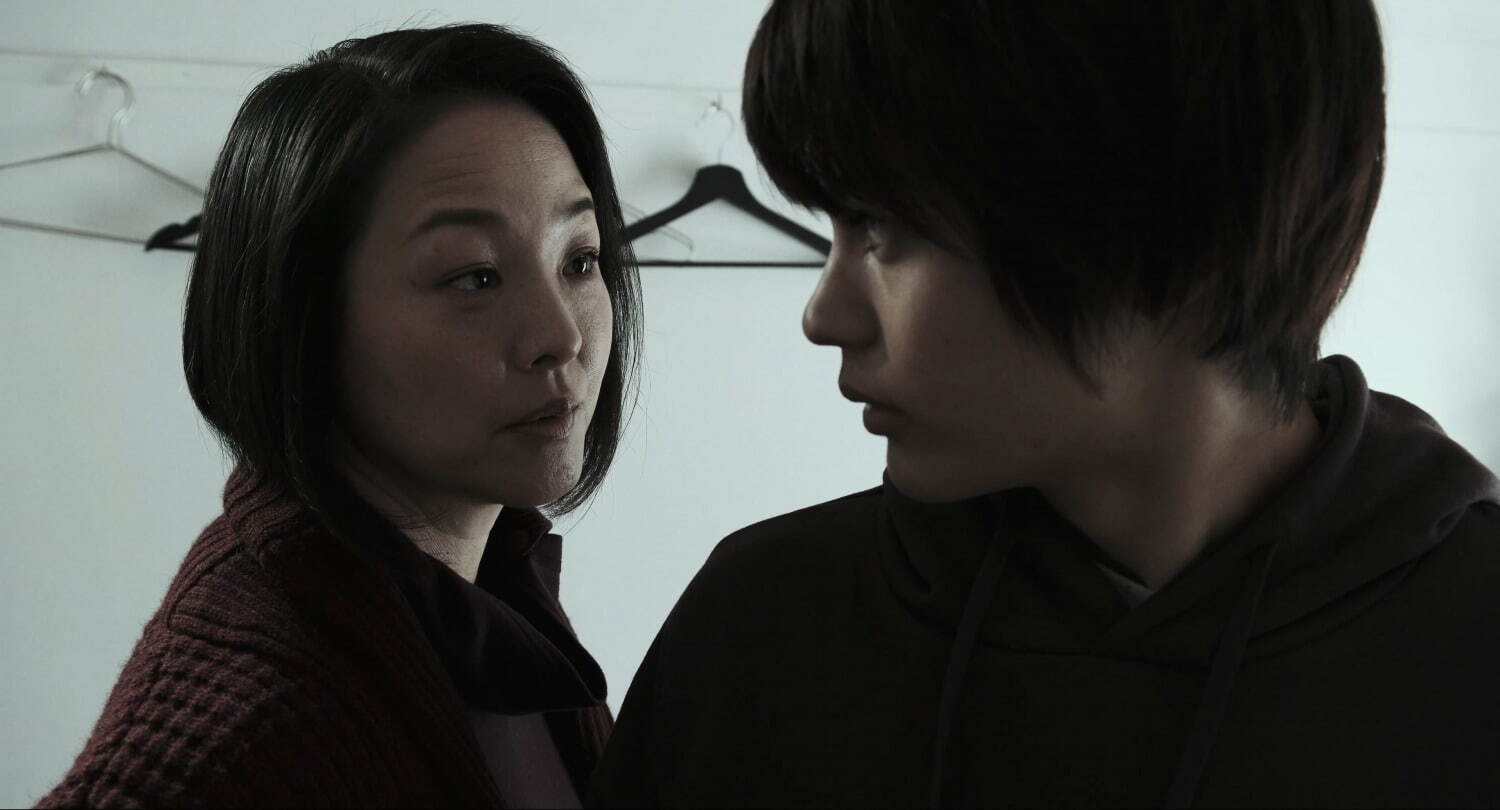
Why did you decide to implement such a slow pace in the movie?
I didn't intend to make it slow, but I wanted to reveal things gradually and build up tension quietly. The film is only 96 minutes long, but many audiences find it really intense.
There are two scenes that stand out particularly for me. The one with the haircut and the confrontation of Kenichi with Megumi. Can you give us some details about the way you shot them?
I tried to portray the haircut scene as an erotic scene and how Megumi puts Yuji under her command, and gets joy out of turning him into a boy she likes. The confrontation scene between Megumi and Kenichi is the one that a wifey-looking woman turns lethal to a thug. I love Meiko Kaji and “Female Prisoner: Scorpion” so while I was shooting, I tried to make Asuka Kurosawa looking like Meiko Kaji.
How was your cooperation with Asuka Kurosawa and Fuju Kamio? In general, how was the casting process of the movie, and how did you end up with Shogen in the role of Kenichi?
Asuka is a brilliant, versatile actress. I'm in love with her work in “Snake of June”, “Cold Fish” and “Paradise.” But lately, she has played mostly roles of gentle wives and mothers in TV soaps. I wanted to use her mercurial presence in full in this film.
Fuju Kamio is an interesting young talent. He's been in many teenage romantic movies and dramas, but he has dark eyes and has played rather darker roles in some films. Since I'm portraying a drama set in the post-COVID world, it was important to cast actors who can convey emotions through their eyes even if their faces are covered by masks.
I've been a good friend with Shogen. I liked his sharp-look and how he could be quite nasty in some roles while he is a real gentleman in real life.
What is your opinion of the Japanese movie industry at the moment? Do you feel that women filmmakers have equal opportunities?
There are more women directors now than before in Japan, but it is still difficult to make films with middle-aged women as heroines. It's either young women or young men or middle-aged men are the protagonists, and middle-aged women are kind of neglected in Japanese films. I think this is due to the fact that the investors are mostly middle-aged men. When I brought this project to one male investor, he told me he was a bit disgusted to see an erotic film about older woman and younger man. I am so sure he wouldn't have been disgusted if the story was about an erotic relationship between an older man and a younger woman. Women over 35 years old are supposed to get married and become mothers, and somehow they become sexless presences. It's really sad. I would like to change that, at least in my films.
Are you working on anything new at the moment?
I'm finishing up a sequel to the documentary about a man who remained in the nuclear zone in Fukushima. I followed the guy for eight years. I also have another fiction feature film consisting of four short films portraying various women living in the post-COVID Tokyo. Both films are due for theatrical release this year.


